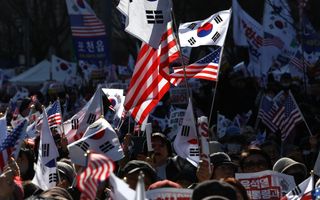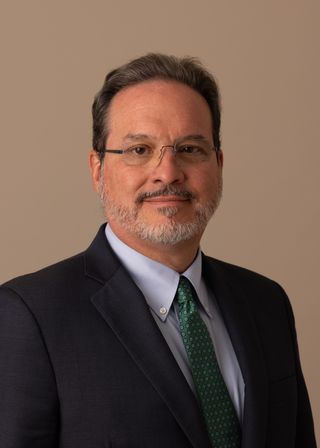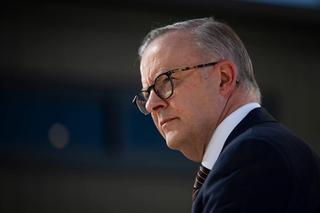The drama around President Yoon Suk Yeol’s martial law gambit and subsequent impeachment and indictment continues to be one of the major international news stories around the world. For many abroad the chaos in Korea’s domestic politics does not comport with their positive image of Korean culture and technology. Despite the constant negative political news out of Seoul, the international name recognition of BTS, Samsung or Nobel Prize Laureate Han Kang is probably still higher than that of any politician — a good thing for Korea’s international brand right now.
However, in key foreign ministries and intelligence agencies overseas, there is undoubtedly an acute focus on how developments in Seoul will impact their own diplomatic strategies in an increasingly contested Indo-Pacific. While I am of course not privy to the innermost discussions about the Korean political crisis in capitals around the world, I can guess from multiple discussions what is at stake for them.
For Washington the stakes should be obvious. There is broad bipartisan US support for building on the Camp David summit President Biden hosted with President Yoon and Prime Minister Kishida Fumio in August 2024. Reconciliation between Tokyo and Seoul was probably the Biden administration’s highest priority in East Asia. Success would enhance deterrence against North Korea; limit Chinese coercive pressure on Asia by linking bilateral alliances into a denser “lattice work”; and strengthen the argument that Asia’s future should be set by democratic norms and not historic grievances against Japan and other imperial powers. That consensus is not complete in Washington, however, because President Donald Trump has demonstrated no personal conviction around the strategy for Asia that most of his senior officials and fellow Republicans in Congress support. Advocates of a stronger US-Korea alliance in Washington will be worried that distraction from Yoon’s pro-alliance agenda — or worse, a reversal — might tempt Trump to treat Korea the way he has close allies like Canada recently.
In Tokyo, Prime Minister Ishiba Shigeru is barely holding on to power with his minority government and has little bandwidth to make major diplomatic moves with Seoul. But behind the scenes in the ruling Liberal Democratic Party his main nemesis is Takaichi Sanae, who is ready to use the nationalist card against Korea to undermine Ishiba’s position if anti-Japanese politics emerge in Seoul. In a recent survey of Japanese security experts I conducted, over 80 per cent said that continuing to build security and diplomatic cooperation with Korea is of high importance, but many worry that politics in Seoul and Tokyo could get in the way.
Canberra will be worried about developments in Seoul as well. Prime Minister Scott Morrison upgraded Australia-Korea relations in 2021 to a Comprehensive Strategic Partnership. Foreign Minister Penny Wong has made strengthening trilateral Australia-Korea-Japan relations a priority and the Albanese government could use Korean diplomatic, development and capacity-building help to shore up the Pacific Islands and parts of Southeast Asia against China’s growing military, economic and political expansion. Bilateral defence and commercial ties are growing, marked by Hanwha’s delivery of self-propelled artillery to Australia’s army this year but Yoon’s embrace of an Indo-Pacific strategy aligned well with Australia’s approach particularly well and the question is whether the diplomatic leg of the relationship is now in jeopardy.
In London, the Foreign Office Asia Hands will likely be deflated by political developments in Seoul. After Brexit and Britain’s search for a global role independent of Europe, Korea stood out as a promising anchor in Asia. The 2023 Downing Street Accord laid out an ambitious agenda for UK-Korea relations, including joint action to enforce UN factions, cooperation on hosting the AI Safety Summit, and negotiating an FTA. London and other European capitals will also be watching to ensure that Korea’s strong stand on Ukraine and participation in the IP-4 summitry with NATO will continue.
Some key Southeast Asian friends of Korea are no doubt watching anxiously as well. Vietnam upgraded relations with Korea to a comprehensive strategic partnership in 2022, putting behind the painful experience of the Vietnam War to celebrate the 30th anniversary of bilateral normalisation. Korea is the top investor in Vietnam and the country’s fourth largest trading partner, enjoying high levels of trust across Southeast Asia according to annual surveys by the Singapore-based Institute for Southeast Asian Studies. What Vietnam or other states in Southeast Asia want from Korea is primarily commercial, but strategically-minded Vietnamese officials will notice if Seoul’s diplomatic stance on the Indo-Pacific shrinks back to what it was before Yoon came to power, as will officials in Singapore or Indonesia.
What countries like Japan, Australia, Vietnam and Britain all have in common is a recognition that Asian geopolitics are not just determined by the bipolar US-China competition. They recognize that the region is also multipolar and that working with like-minded states increases each of their influence to shore-up the US led system and, when necessary, moderate US behaviour. Japan has stood out as a key partner in multipolar Asia since Shinzo Abe renewed a more active diplomatic stance for his country a decade ago. But Japan alone was not enough. Korean governments hewed to the idea that Asia’s future was being determined in the bipolar dynamics of US-China relations far longer than Australia, Britain or others — and there was great excitement when Yoon embraced multipolarity and the Indo-Pacific as foundational concepts for his foreign policy.
The question now for many governments is whether President Yoon has blown up this new strategy in addition to his own government.
This is also the question that hopeful officials in Moscow, Beijing and Pyongyang are likely asking themselves. A neutered and passive Korea would suit their strategies perfectly.
Nobody in politics in Seoul should get a pass on this question. While media and National Assembly debate will overwhelmingly be about domestic politics, the question should be asked to emerging leaders on both sides of the aisle: “What will you do to keep Korea’s global influence strong as we come out of this political crisis?”









